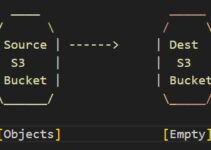In this AWS tutorial, we discuss what are Amazon EC2 Container Service and its features. mostly it is called AWS ECS Service.
AWS ECS is also known as EC2 container services.
Amazon EC2 Container Service and its features
Amazon EC2 Container Service (ECS) is a scalable container orchestration service offered by Amazon Web Services (AWS). It provides an easy way to run and manage containerized applications using Docker containers. With ECS, developers can focus on building and deploying applications without worrying about the underlying infrastructure.
- High scalable, high-performance container management service that supports docker container and allows you to run the application on the managed cluster of EC2 instances.
- It is invented in Nov 2014
- Typically you do deploy your application on dedicated physical and virtual Hardware with more manual work. You can do these tasks with managed services that are ECS
- Deploying your application is distributed and the cluster environment comes with 2 key components
-
- Reliable state management
- Flexible Scheduling
-
In today’s fast-paced world, organizations are increasingly adopting containerization as a means to simplify application deployment and management. Containers offer a lightweight and efficient way to package and deploy applications, ensuring consistency across different environments. Amazon ECS takes containerization to the next level by providing a scalable and highly available platform for running containers.
What is Amazon EC2 Container Service (ECS)?
Amazon ECS is a fully managed container orchestration service that simplifies the process of deploying, managing, and scaling containers. It allows you to run applications in a highly available and fault-tolerant manner by distributing containers across a cluster of EC2 instances.
Benefits of Using Amazon ECS
Using Amazon ECS offers several benefits for organizations:
- Scalability: Amazon ECS provides elastic scalability, allowing you to easily scale your applications up or down based on demand. It automatically adjusts the number of containers running in response to changes in load, ensuring optimal resource utilization.
- Flexibility: ECS supports a wide range of containerized applications, making it suitable for various use cases. Whether you have a single-container application or a complex microservices architecture, ECS can handle it.
- Cost-effective: With ECS, you only pay for the resources you use. It optimizes resource allocation, enabling you to achieve higher resource utilization and cost efficiency. You can also take advantage of spot instances to further reduce costs.
- Reliability: Amazon ECS ensures high availability and fault tolerance by distributing containers across multiple availability zones. If an EC2 instance fails, ECS automatically reschedules the containers to healthy instances, minimizing downtime.
- Security and Compliance: ECS integrates with AWS Identity and Access Management (IAM) and other security services, allowing you to implement fine-grained access controls. It also supports encryption at rest and in transit to protect your data.
What happens when you run your application on ECS?
When you run distributed application which is deployed as containers your cluster transferring into a dynamic environment, where user spin of a pool of computer resources on-demand and dynamically change the resource available as their Job change over time.
AWS ECS Features
- Easily manage clusters of any scale
- Flexible containers placement
- Different Az’s
- Different Region
- Integrates with other AWS Services
Eg: ELB, Autoscale, and IAM … - Extensible Infrastructure Solution
4.1 Elastic Scalability
Amazon ECS provides built-in auto scaling capabilities that allow you to automatically adjust the number of containers based on predefined metrics such as CPU utilization or request count. This ensures that your applications can handle increased traffic without manual intervention.
4.2 Container Management
ECS simplifies container management by handling the underlying infrastructure tasks. It takes care of container placement, scheduling, and scaling, allowing you to focus on your applications. You can easily deploy and manage multiple containerized applications without worrying about the underlying infrastructure.
4.3 Task Definitions
In Amazon ECS, you define your application’s requirements and configurations using task definitions. A task definition describes how containers should be deployed and run, including container images, CPU and memory requirements, networking information, and task dependencies. It provides a blueprint for launching containers in your cluster.
4.4 Service Auto Scaling
Amazon ECS offers service auto scaling, which automatically adjusts the number of running tasks based on predefined scaling policies. You can define scaling policies that respond to changes in demand and ensure that your application can handle fluctuations in traffic. This feature helps you optimize resource utilization and maintain application performance.
4.5 Load Balancing
With Amazon ECS, you can easily distribute incoming traffic across multiple containers using elastic load balancing. This helps to evenly distribute the workload and improve the availability and responsiveness of your applications. ECS integrates seamlessly with Elastic Load Balancing services such as Application Load Balancer and Network Load Balancer.
4.6 Service Discovery
Amazon ECS provides service discovery capabilities that enable your containers to discover and communicate with each other. You can use either DNS-based or service registry-based service discovery methods to facilitate seamless communication between containers within your cluster. This simplifies the development and management of microservices architectures.
4.7 Security and Compliance
Security is a top priority for Amazon ECS. It integrates with AWS Identity and Access Management (IAM) to control access to your containers and resources. You can define fine-grained permissions and access policies, ensuring that only authorized entities can interact with your containers. Additionally, ECS supports encryption at rest and in transit, providing an extra layer of data protection.
4.8 Integration with Other AWS Services
Amazon ECS seamlessly integrates with other AWS services, allowing you to leverage additional capabilities and build more comprehensive solutions. You can easily integrate ECS with AWS Fargate for serverless container deployment, Amazon CloudWatch for monitoring and logging, AWS App Mesh for advanced networking, and more. This integration provides a rich ecosystem of services to enhance your containerized applications.
List of AWS ECS Elements
- The container is created with read-only templates called Image
- Images are typically developed by Dockerfile a plain text file that specifies the entire component Included in a container
- These images are then stored in a registry from which they can be downloaded and run on your containers instances
- Task definition, to prepare your application to run on Amazon ECS you create a task definition, A task definition is a text file in a JSON format that describes one or more containers that form your application.
- ECS Integrates with AutoScale features it is used to scale-up / out your containers instances within a cluster in response to some metrics.
- AWS Security group acts as a virtual firewall that controls the traffic for one or more instances.
- ELB automatically distribute incoming traffic across multiple EC2 instances in the cloud.
- EBS Volumes provides Block level storage volumes for use with EC2 instances
- IAM Roles can be used to control access at the container instance level using IAM roles and at the task level using IAM task roles.
Use Cases of Amazon ECS
Amazon ECS is suitable for a wide range of use cases, including:
- Web applications: You can use Amazon ECS to deploy and scale web applications built using containers. ECS ensures high availability and fault tolerance, allowing your applications to handle traffic spikes effectively.
- Microservices: Amazon ECS provides a robust platform for deploying and managing microservices architectures. With its support for service discovery, load balancing, and automatic scaling, ECS simplifies the development and management of complex microservices systems.
- Batch processing: ECS is well-suited for batch processing workloads. You can use ECS to run containerized batch jobs in parallel, achieving faster processing times and better resource utilization.
- DevOps workflows: Amazon ECS integrates seamlessly with AWS CodePipeline and AWS CodeDeploy, enabling you to incorporate continuous integration and continuous deployment (CI/CD) practices into your DevOps workflows. This helps streamline the development, testing, and deployment processes.
Getting Started with Amazon ECS
To get started with Amazon ECS, you need to follow a few steps:
- Create an ECS cluster: First, create an ECS cluster, which is a logical grouping of EC2 instances that run your containers. You can use the AWS Management Console, AWS CLI, or AWS SDKs to create a cluster.
- Create a task definition: Define the requirements and configurations for your containers using a task definition. Specify the container image, resource requirements, networking information, and other parameters.
- Create a service: Launch a service in your ECS cluster, which represents a long-running task that runs and maintains a specified number of instances of a task definition. This allows your containers to be automatically managed and scaled.
- Deploy your containers: Once your service is created, you can deploy your containers to the ECS cluster. ECS will handle the placement and scheduling of the containers across the cluster, ensuring high availability and fault tolerance.
- Monitor and scale: Monitor the performance and resource utilization of your containers using Amazon CloudWatch. You can set up alarms and scaling policies to automatically adjust the number of containers based on predefined metrics.
- Manage and update: As your application evolves, you can easily manage and update your containers in Amazon ECS. You can modify the task definition, roll out new versions of your containers, and perform rolling updates to minimize downtime.
- Integrate with other services: Take advantage of the seamless integration between Amazon ECS and other AWS services. Integrate with AWS Fargate for serverless container deployment, Amazon ECR for container image storage, AWS App Mesh for advanced networking, and more.
By following these steps, you can leverage the power of Amazon ECS to deploy and manage your containerized applications effectively.
Conclusion
Amazon EC2 Container Service (ECS) is a robust and fully managed container orchestration service offered by Amazon Web Services (AWS). With its elastic scalability, container management capabilities, task definitions, service auto scaling, load balancing, service discovery, security features, and integration with other AWS services, ECS provides a comprehensive platform for running and managing containers at scale.
By using Amazon ECS, organizations can achieve greater flexibility, scalability, and cost efficiency in their application deployment and management processes. Whether you are running web applications, microservices, batch processing workloads, or implementing DevOps workflows, ECS offers the tools and features to simplify and streamline your containerized application deployments.
AWS Fargate Price Reduction – Up to 50%
End of this AWS tutorial, which explained in detail what is Amazon EC2 Container Service and its features.
FAQs
1. How much does Amazon ECS cost? Amazon ECS offers a pay-as-you-go pricing model. You pay for the resources you use, such as EC2 instances, EBS volumes, and data transfer. Detailed pricing information can be found on the AWS website.
2. Is Amazon ECS suitable for small-scale applications? Yes, Amazon ECS is suitable for applications of all sizes. It can scale from small-scale applications to large-scale enterprise deployments, providing the necessary flexibility and scalability.
3. Can I use my own container images with Amazon ECS? Yes, you can use your own container images with Amazon ECS. You can store your container images in Amazon Elastic Container Registry (ECR) or use other container registries.
4. What is the difference between Amazon ECS and Amazon EKS? Amazon ECS is a container orchestration service that focuses on managing containers running on EC2 instances. Amazon EKS, on the other hand, is a managed Kubernetes service that allows you to run containers using Kubernetes on AWS.
5. Is Amazon ECS a fully managed service? Yes, Amazon ECS is a fully managed service. AWS takes care of the underlying infrastructure, such as provisioning and scaling EC2 instances, allowing you to focus on your applications.
Thanks for reading this article you’ll also like it.
Amazon EC2 M5 vs C5 Instance Comparison
Docker Commands Tutorial for Beginners with Example









